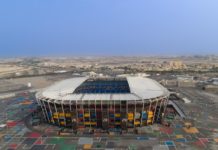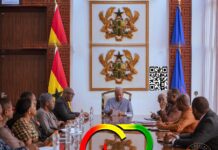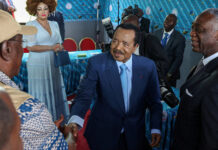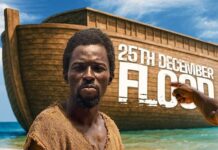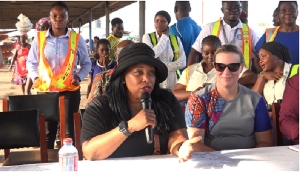
The Acting US Assistant Secretary of State for Oceans and International Environmental and Scientific Affairs, Jennifer R. Littlejohn, has visited Ghana as part of a working tour to three coastal countries.
Her visit centers on nature and marine conservation, plastic pollution, the climate crisis, deforestation, nature crimes, civil and commercial space activities, and the sustainable blue economy.
In Ghana, she met with partners associated with U.S supported projects helping to rebuild and protect Ghana’s coastal fisheries and engaged with university students studying environmental issues.
She led a delegation to the Tema Fishing Harbour to gain first-hand experience of ongoing initiatives to curb illegal, unregulated, and unreported fishing in the industrial, semi-industrial, and artisanal sectors of the fishing industry.
She also chaired an open forum with the fishing community to discuss the various practical impediments to safe, wholesome, and legal fishing in Ghana.
The Vice President of the National Fisheries Association of Ghana (NAFAG), Richster Nii Amarh Amarfio, hosted the delegation and led the tour at the Tema Fishing Harbour.
“Before we came to the canoe basin sheds we went to the main port. She looked at tuna vessels and trawl vessels because we are taking measures to ensure that the trawlers comply so we are piloting electronic monitoring systems on all the trawl vessels to ensure that whatever activity happens on the trawl vessel is seen right on time to avoid illegal fishing and illegal activities. You realize that almost all the women were blaming the trawlers for all the things that are happening at sea but I can assure you that a lot have been done beyond what they know.”
He said such forums allow stakeholders to develop an appreciable perspective on environmental issues in the marine fisheries sector.
“So now that we’ve been able to deal significantly with the activities of trawl that could be said to be illegal we now expect the commission working with those of us in the industry to engage. This is an eye-opening experience. It is also an opportunity for us to now engage them more and let them know that we could do better.”
A senior researcher at the Centre for Maritime Law and Security (CEMLAWS) Africa said Jennifer R. Littlejohn’s visit has come at an opportune time to disabuse the notion of some sections of industry in the nation’s direction on IUU fishing.
“One thing that they mentioned was that they couldn’t tell the difference between IUU-caught fish and fish that was properly caught. So I think that coming on board through the government helping them to identify what IUU fish is, helping them to understand whether through infographics, through more media coverage including them in the decision making, it’s important and on their part to understand and not to follow the narrative that IUU is not by them and that is by the industrial trawlers. We need to help them understand that it’s on both sides and they need to help curb it,” she said.



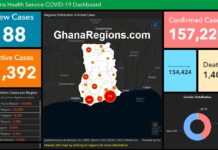
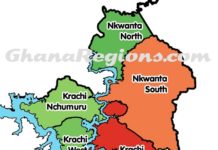
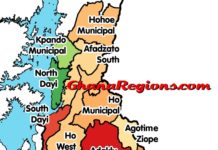
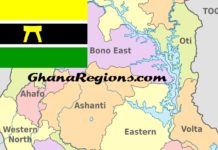












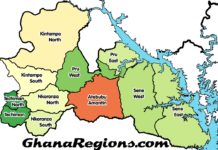
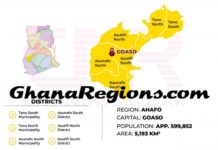

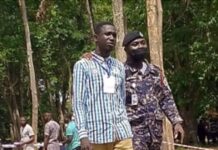
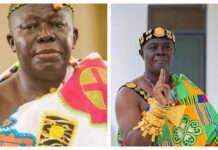
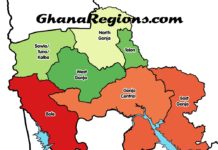

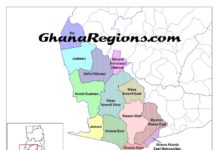
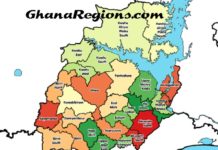






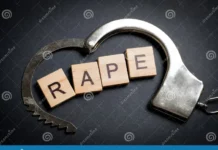
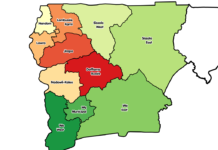
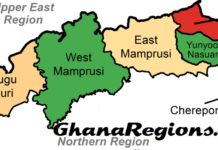
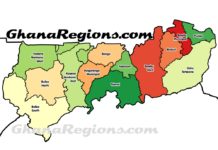
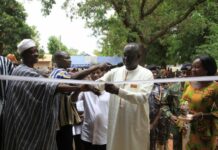










![Morocco knock out Spain on 3-0 penalties to reach FIFA World Cup 2022 quarter-final, Morocco vs Spain (0-0) (3-0) [Video]. Morocco knock out Spain on 3-0 penalties](https://ghanaregions.com/wp-content/uploads/2022/12/Watch-Morocco-vs-Spain-0-0-and-3-0-penalties-218x150.jpg)





